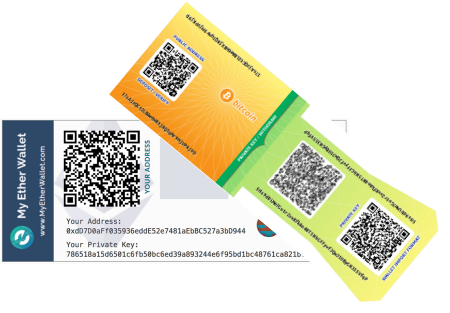Paper wallets
Paper wallets are a form of cold storage for cryptocurrencies, meaning they store your private keys offline, which provides a high level of security against digital threats. A paper wallet is essentially a physical piece of paper that contains your cryptocurrency's public and private keys, usually in the form of QR codes that can be scanned when you need to make a transaction. Since the keys are stored offline and not connected to the internet, paper wallets are immune to hacking, malware, and other digital attacks, making them one of the most secure ways to store your crypto assets.
However, the security of a paper wallet comes with some significant trade-offs in terms of convenience and usability. To create a paper wallet, you typically use an offline wallet generator, which should be done in a secure, offline environment to avoid any potential exposure to malware or keyloggers. Once generated, the paper wallet should be stored in a safe, secure place, such as a safe deposit box, to protect it from physical threats like fire, water damage, or theft. Unlike software or hardware wallets, paper wallets can be cumbersome to use for regular transactions. To move funds from a paper wallet, you need to import the private key into a software wallet, which can expose the key to the internet and negate the security advantages of cold storage.
Due to the complexity and risk of loss or damage, paper wallets are generally considered outdated and are not recommended for most users, especially those new to cryptocurrency. However, they can still be a viable option for long-term storage of large amounts of cryptocurrency that you do not plan to move frequently. If you choose to use a paper wallet, it's crucial to follow best practices in creating, storing, and eventually using it to ensure your funds remain secure.




